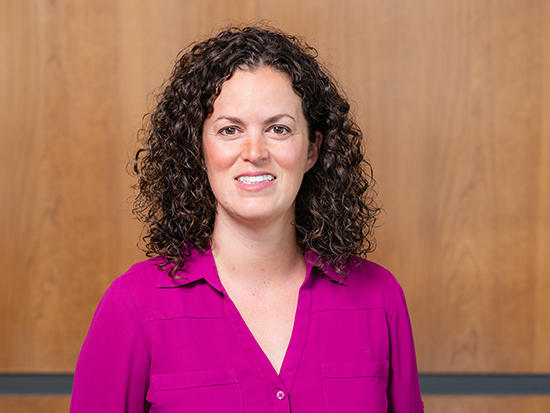 Women are twice as likely to be diagnosed with Alzheimer's disease as men. Could childbearing play a role? Several studies have linked a woman's risk of being diagnosed with cognitive problems later in life to the number of children she had. The highest risk tends to be among women who had no children or four or more children. But in a new study, UAB sociologists found that early-life factors, including a woman’s socioeconomic status in adolescence, accounted for the apparent pregnancy-cognitive connection.
Women are twice as likely to be diagnosed with Alzheimer's disease as men. Could childbearing play a role? Several studies have linked a woman's risk of being diagnosed with cognitive problems later in life to the number of children she had. The highest risk tends to be among women who had no children or four or more children. But in a new study, UAB sociologists found that early-life factors, including a woman’s socioeconomic status in adolescence, accounted for the apparent pregnancy-cognitive connection.
For the past decade or so, a growing number of studies have identified a link between childbirth and a woman’s risk of dementia later in life. In most of the studies, women who have had children are less likely to be diagnosed with Alzheimer’s disease, or dementia, than are women who have not had children. In some studies, however, the trend reverses after five (or more) children or as few as three: In these studies, women who have more children have a higher risk of dementia than women with fewer children. (One media headline about a 2022 study: “Rearing 3 or more children could make you literally lose your mind, study says.”) Then again, other studies have found that women with no children have fewer cognitive deficits than those who do have children.
What is undoubtedly true is that women are twice as likely to be diagnosed with Alzheimer’s disease as men. Even though women live longer, and age is the largest contributor to risk of Alzheimer’s, age differences between men and women alone cannot explain the disparity, some researchers argue. Does the flood of hormones associated with pregnancy, especially estrogen and progesterone, have long-term impacts on the brain? Do these hormones have a protective effect up to a certain number of pregnancies, but then the hormonal changes begin to harm the brain?
Although such biological explanations are just speculation, the widely varying results are certainly puzzling. “The most common finding is this U-shaped curve, where the best cognition is among those women who have had one to three kids, and the worst cognition is in those who have had no kids or four or more,” said Mieke Beth Thomeer, Ph.D., a professor in the Department of Sociology in the UAB College of Arts and Sciences.
Thomeer and Joseph Wolfe, Ph.D., an associate professor in UAB’s sociology department, are co-investigators on a grant from the National Institutes of Health to study the links between women’s childbearing histories and their health later in life. “The data are just complicated,” Thomeer said. “With each study that comes out, you see results and conclusions that are all over the place.”
“What we found is that, if you don’t take into account these early-life factors, it looks like there is a pretty robust relationship between number of kids and a woman’s memory and cognition,” Thomeer said. But once the researchers used mathematical models to account for the known associations between, for example, limited education and poor later-life brain health, the relationship between a woman’s pregnancies and her cognitive functioning “goes away,” Thomeer said.
A new paper by Thomeer, Wolfe and colleagues at UAB and Ohio State University suggests another explanation for the pregnancy-cognition link. Their findings illustrate how a woman’s life circumstances before she started having children — including her parents’ occupations, her family’s income, her race and ethnicity, her grades in school, and more — can affect the number of children she has and the likelihood that she will experience poor cognitive functioning later in life. In other words, having six children may not cause a woman to have a higher risk of a dementia diagnosis. Instead, both her number of pregnancies and her brain function could be influenced by those same early-life circumstances. And the circumstances, which sociologists such as Thomeer refer to as “selection factors,” could play the pivotal role.
“What we found is that, if you don’t take into account these early-life factors, it looks like there is a pretty robust relationship between number of kids and a woman’s memory and cognition,” Thomeer said. But once the researchers used mathematical models to account for the known associations between, for example, limited education and poor later-life brain health, the relationship between a woman’s pregnancies and her cognitive functioning “goes away,” Thomeer said.
The importance of early-life factors
 Mieke Beth Thomeer, Ph.D., a professor in the UAB Department of Sociology, has been studying the health effects of pregnancy histories among women taking part in a nationwide longitudinal study.The paper, “Childbearing Histories and Midlife Cognition: Accounting for Early Life Factors,” was selected as an editor’s choice in The Journals of Gerontology: Series B, where it was published in December 2024. It rigorously accounts for something that is only inconsistently adjusted for in other studies: social context, specifically in early life and adolescence. As Thomeer and her co-authors write in their paper, a wide range of factors “select people into specific childbearing experiences and alter their risk of poor cognition. For example, because people from lower socioeconomic backgrounds are more likely to have a birth in adolescence and more likely to develop cognition issues, considering how adolescent births relate to cognition without accounting for selection factors overestimates this association.”
Mieke Beth Thomeer, Ph.D., a professor in the UAB Department of Sociology, has been studying the health effects of pregnancy histories among women taking part in a nationwide longitudinal study.The paper, “Childbearing Histories and Midlife Cognition: Accounting for Early Life Factors,” was selected as an editor’s choice in The Journals of Gerontology: Series B, where it was published in December 2024. It rigorously accounts for something that is only inconsistently adjusted for in other studies: social context, specifically in early life and adolescence. As Thomeer and her co-authors write in their paper, a wide range of factors “select people into specific childbearing experiences and alter their risk of poor cognition. For example, because people from lower socioeconomic backgrounds are more likely to have a birth in adolescence and more likely to develop cognition issues, considering how adolescent births relate to cognition without accounting for selection factors overestimates this association.”
And, in fact, when the researchers accounted for a wide range of these early-life factors, including socioeconomic status, parental education, race/ethnicity, and self-esteem, the link between pregnancy and cognitive function faded. In the end, only one robust association remained, according to the researchers: Mothers had worse self-reported memory than women who had never given birth. But those same women, when given objective cognitive tests, did not fare worse (or better) on average than other women.
If it is early-life factors that set women up for higher risk of cognitive decline, the researchers conclude, then interventions should come at an early age, as well. “Rather than targeting parity [childbirth] or age at first birth to improve cognition, we should focus on earlier life mechanisms, such as improving education quality and reducing childhood poverty rates,” they write. In addition to Thomeer and Wolfe, the authors of “Childbearing Histories and Midlife Cognition” are doctoral student Dee Ferguson from the UAB Department of Sociology and Professor Rin Reczek, Ph.D., and doctoral student Rui Cao from Ohio State University.
Study details
Unlike many studies, which focus on dementia or Alzheimer’s diagnoses when women are in their 70s and beyond, Thomeer and colleagues wanted to see what happened when they studied midlife women, close to age 50. This is when memory and cognitive problems first start to appear.
Through their NIH grant, Thomeer and Wolfe have been studying the health effects of pregnancy histories among women taking part in the 1979 National Longitudinal Survey of Health, which enrolled a nationally representative group of more than 12,600 Americans in their late teens to early 20s in that year. They used this same dataset to try to untangle the links between pregnancy and cognition in their new paper.
The participants supplied high school transcripts and took a wide range of cognitive tests when they enrolled in the study in 1979. They also shared detailed information on their life histories at enrollment and again many times over the intervening decades. From 2006 to 2016, when most of the participants were 48 or 49, they completed a series of cognitive tests. (One test, for example, is called serial 7s; it asks the participant to count backward from 100 by seven and times how long it takes them to respond.) These data allowed Thomeer and her colleagues to construct different models that accounted for various early-life factors.
Future directions
Thomeer and her colleagues now plan to look for changes across different generations of women “in how childbearing is associated with cognition,” she said. In a paper published in May 2024, Thomeer and Wolfe examined the link between teen pregnancy and poor late-life health as it shifted across the 20th century. “Today, teen pregnancy is a lot more select,” Thomeer said. “Many of our grandparents had teen births, or it wasn’t unusual. Today, it is less normative, and it’s only a subset of people who tend to have births as teens.”
In that May 2024 paper, “what we found is that, as teen births have become more select and rarer, the consequences of teen birth have gotten steeper,” Thomeer said. Women who give birth as teens “are less likely to go to college and graduate from college, compared with teen births in the past” and “teen births are now much more associated with worse health,” she said. “It used to be that you did not see that strong a correlation between having a teen birth and poor health, but now you do. We’re wondering if something like that may be happening with cognition.”
For example, as the number of women who have large families has dropped from generation to generation, has the risk of dementia (or protection against dementia) associated with having many pregnancies changed? Similarly, as society’s view of women who choose not to have children has changed, do women without children have the same health outcomes that they once did?
“Motherhood is a lot more than just giving birth and having brain changes,” Thomeer said. “There is a social embeddedness to what motherhood means across different groups.”
Learn more about master's, doctoral and undergraduate programs in the Department of Sociology and apply to UAB.